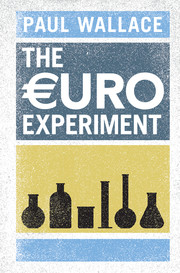8 - Sovereign remedies
Published online by Cambridge University Press: 05 December 2015
Summary
As one country after another was admitted into the intensive-care ward of a bail-out, the regimen was the same: a combination of austerity and structural reforms. Countries like Italy and Spain seeking to avoid the humiliation of a full rescue (Spain's national pride was salved by confining its bail-out to its banks) self-administered some of the same medicine. The balance and timing of the treatment was ill-gauged: there was too much austerity at the start and insufficient reforms. But the need for the latter appeared indisputable. Indeed, one interpretation of the euro crisis was that the single currency had exposed underlying flaws, in particular defective labour and product markets, in the crisis countries that would eventually have had to be tackled in or out of the monetary union.
One purpose of the reforms was to make southern economies more flexible and thus better able to regain competitiveness through lowering domestic costs. Another was to foster stronger growth, which would allow economies to deal with excessive debt, both public and private. As one senior German official put it, the new fiscal rules were needed to deal with the numerator – the government debt itself – while the structural measures were required to boost the denominator – GDP. Pension reforms were part of the remedy. Though generally slow working, they had the advantage of operating on both the numerator by making budgetary savings and the denominator by keeping older people in work, thus increasing the labour supply and potential output.
An alternative interpretation of the euro crisis was that the faith placed in reforms was overstated and that the difficulties afflicting the periphery had arisen by joining a monetary union that put them into a straitjacket. The case for overhauling the supply-side of European economies was after all long-standing, informing the ‘Lisbon agenda’, set out at a summit in Portugal in March 2000, which aimed to turn the EU over the ensuing decade into ‘the most competitive and dynamic knowledge-based economy in the world’, a vision that was not realised.
- Type
- Chapter
- Information
- The Euro Experiment , pp. 208 - 239Publisher: Cambridge University PressPrint publication year: 2015



